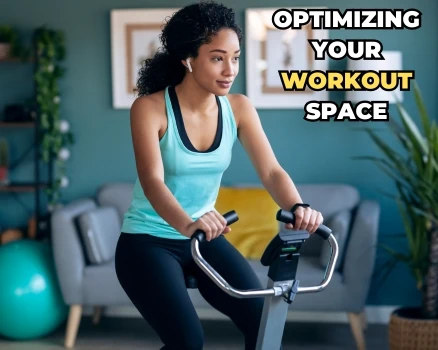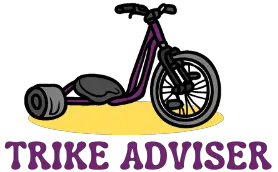Shedding pounds seems like a battle, right? A stationary bike promises a route. Yet, many miss the mark. Not for lack of trying. It’s the method that’s amiss.
You pedal daily, sweat pouring. Weeks pass. The scale? Unmoved. Frustrating, isn’t it? This common scenario leaves many questioning the bike’s worth. Here’s the kicker. The issue isn’t with the bike. It’s the approach that’s flawed. Without the right strategy, efforts are just wheels spinning. But, fear not.
Transforming that stationary bike into a weight-loss machine is doable. How? By understanding its potential and harnessing it correctly. Say goodbye to pointless pedaling. Welcome to targeted, effective workouts. Ready to make that bike work for you?”
How to Lose Weight on a Stationary Bike
Adjust Intensity: The Dynamic Approach
Intensity tweaks make all the difference. Alter resistance, pace, or stand while pedaling. This not only amplifies calorie burn but adapts as you advance. It’s about smart, scalable effort.
Embrace Diverse Workouts
LISS: The Long Game
Low Intensity Steady State (LISS) cardio, spanning 30-60 minutes, elevates your Total Daily Energy Expenditure (TDEE). It’s a cornerstone for sustainable weight loss, fostering endurance without the burnout.
HIIT: The Quick Burn
High-Intensity Interval Training (HIIT) marries brief, explosive effort with rest. This combo maximizes calorie demolition and sparks continued burn post-exercise. Efficiency at its peak.
Spin Classes: The Community Push
Spin classes merge motivation with method. They compel you to exceed personal bests, courtesy of group dynamics and structured challenges.
Consistency Meets Variety: The Balanced Formula
Routine is your ally. Blend varied cardio, strength routines, mindful eating, and sufficient rest. This multi-angled attack ensures comprehensive progress, beyond mere weight loss.
Nutrition: The Calorie Equation
Aim for a calorie deficit. Opt for whole, nutrient-rich foods. Balance is key. Your dietary choices should complement, not counter, your physical efforts. It’s about nourishing, not just subtracting.
Duration and Frequency: The Steady Climb
Kick off with thrice-weekly, 30-minute sessions. Gradually extend duration and intensity. Persistence and regular engagement are indispensable for tangible outcomes.
Bonus Strategies
Hydration: The Metabolic Enhancer
Water isn’t just vital for life; it’s a catalyst for metabolic efficiency. Hydrate generously to optimize every workout.
Dietary Discipline: The Smart Choices
Limit added sugars and processed carbs. Favor protein and low-carb options. These choices fuel your fitness journey, aiding muscle recovery and satiety.
Progress Tracking: The Motivational Metric
Monitor your wattage output. It’s a direct measure of workout potency. Tracking advances motivates and informs strategy tweaks, ensuring you’re always on the path to improvement
Optimizing Your Workout Space

Creating the right environment and having the proper gear are key to maximizing the benefits of stationary biking. Let’s dive into how you can optimize your workout space to keep your motivation high and your sessions effective.
Creating a Motivating Environment
Claim Your Space
Identify a dedicated area in your home where your bike and gear can permanently reside. Easy access means fewer excuses and more riding.
Space Requirements
Aim for a minimum of 4 feet by 8 feet of floor space. Ensure there’s an electrical outlet nearby for your equipment. A spacious or well-ventilated area enhances comfort, making those longer sessions more bearable.
Gather Your Gear
Keep essentials within arm’s reach:
- Water Bottle: Stay hydrated without pausing your workout.
- Towels: For sweat management and equipment protection.
- Waterproof Mat: Protects your floor and stabilizes your bike.
- High-Quality Earphones: For immersive sound that motivates.
- Fan: A must-have for cooling down and increasing comfort.
The Right Gear for Stationary Biking
Choosing the Bike
Select a bike that aligns with your fitness goals:
- Spin Bike: Offers a realistic cycling feel.
- Recumbent Bike: Great for those needing extra back support.
- Rollers: For experienced cyclists focusing on technique.
- Smart Trainer: Integrates with apps for a guided workout experience. Some models even offer AI-personalized sessions for tailored fitness advancement.
Accessories
Equip yourself for success and comfort:
- Water Bottle: Essential for hydration.
- Towels: Keep one for wiping sweat and another for laying over your equipment.
- Waterproof Mat: A dual-purpose accessory that protects floors and reduces noise.
- High-Quality Earphones: Choose sweat-resistant ones for durability.
- Fan: Opt for a model with adjustable speed to control airflow based on workout intensity.
Addressing Common Challenges

Navigating the bumps on your cycling journey? Let’s tackle them head-on.
Dealing with Soreness and Fatigue
Time to Rest
Feeling sore? It might be time to take a break. Rest days are crucial.
Ice Works Wonders
Soreness after a ride? Ice can help. It reduces inflammation, soothes the ache.
Keep Moving, Gently
Don’t stay still. Opt for a walk or gentle stretches. It aids recovery.
Balancing Exercise with Life Demands
Make It Fit
Busy schedule? Use your bike for errands. It counts.
Active Choices Add Up
Take the stairs. Park further. Small steps lead to big changes.
Injury Prevention and Management
Know the Risks
Common pains? Knee and back issues top the list. A good bike fit helps.
Stay Flexible
Incorporate stretches. Strength training helps too. It’s about balance.
Expert Advice Matters
Persistent pain? See a professional. Don’t wait until it’s too late.
Mindfulness and Motivation

Journeying through fitness with a clear mind and steady drive? Here’s how.
The Role of Mindfulness in Fitness
Stay Present
Focus on now. Feel each breath. Each movement. It sharpens focus, enhances workouts.
Mind Over Muscle
Your body follows where your mind leads. Keep it on the present path.
Building a Support System
Not Alone
Friends, coaches, online pals. They’re your cheer squad, pushing you beyond limits.
Virtual or Real
Digital forums or gym buddies, support comes in many forms. Find yours.
Staying Motivated
Set Clear Goals
Goals give direction. Make them realistic. They’re the signposts on your fitness journey.
The Right Space
A tidy, inviting workout area keeps distractions at bay. It matters.
Music Matters
Let tunes fuel your sessions. They can turn effort into ecstasy.
Mindful Moves
Concentrate on the here and now. It transforms routine into ritual.
Mix It Up
New routines fend off boredom. Stay curious, stay engaged.
Hydration and Nutrition
Fuel and water are your allies. Never start empty.
Accountability Buddy
A partner in fitness doubles the commitment. Find yours.
Celebrate Every Victory
No win is too small. Celebrate them all. It fuels further success.
Know When to Rest
Breaks are not setbacks. They’re part of the journey. Embrace them.
Remember Why You Started
On tough days, recall your purpose. It’s the light guiding you forward.
Pre and Post-Workout Routines
Pre and Post-Workout Routines
Prepping and winding down correctly can make your cycling session more effective and enjoyable. Let’s break it down.
Warm-Up Exercises
Get Moving
Start with squats, arm and ankle circles. Add a low lunge with T spine reach.
Bike Intervals
Hop on the bike. Begin with low resistance, low cadence. It’s about waking muscles up.
Cool-Down Stretches
Unwind Right
Post-ride, stretch it out. Think forward fold, chest opener, and standing hamstring stretch.
More Stretches
Don’t skip the standing glute and quad stretches. They’re key to recovery.
Hydration and Nutrition Timing
Pre-Ride
Drink 17-20 ounces of water two hours pre-ride. Then, 8 ounces 20-30 minutes before.
During Ride
Every 10-15 minutes, sip on carbohydrate-electrolyte solutions. Keep energy levels steady.
Post-Ride
First, weigh yourself. Lost weight equals water loss. Drink 3 cups of water per pound lost. Also, include carbs and sodium to refill energy stores and aid recovery.
As an Amazon Associate, I earn from qualifying purchases, at no additional cost to you. Read Our Affiliate Disclosure.

